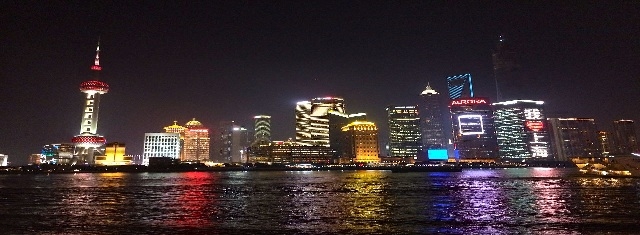Lifestyle
CHINA with the obsession with MEGACITIES & SHOPPING MALLS
COMPETITION OF ONLINE SHOPPING

Shanghai, China (Source: Wikipedia)
USPA NEWS -
Shopping malls are still new phenomenon in China. Spending was encouraged as the population grew richer, but the rush to buy meant demand quickly outstripped supply. As the shopping small sector began to develop, the popularity of shopping as a pastime...
Shopping malls are still new phenomenon in China. Spending was encouraged as the population grew richer, but the rush to buy meant demand quickly outstripped supply. As the shopping small sector began to develop, the popularity of shopping as a pastime for newly urbanised citizen grew. With the country's economy sluggish, sales growth has begun to slow and shoppers have begun to temper their spend. Retailers have shifted focus from expansion to rationalism.
In the past twelve months, 44% of the world's new shopping malls were built in China, according to commercial property agency CBRE. But with retailers renting less space, some malls are already struggling. New and old malls face huge challenges attracting retailers and shoppers. Even though, entrepreneurial companies are drawing up blueprints for malls of the future : smart, connected and complexes.
In China, the retail market developed in parallel with e-commerce and the threat looks different than to struggle to head off from the internet. China's smartphone users skipped the PC era, and many use their devices to go shopping. In China, e-commerce is a lifestyle. But how can online shopping revitalise physical shopping ? Chinese consumers are more open to incorporating mobile technology into their physical shopping.
Successful malls in China have already begun to evolve. Many complexes have dedicated around half their space to restaurants, cinemas, skating rinks, bowling alleys, spas, playgrounds... Many urban communities in China lack adequate public facilities, and malls have become natural meeting places, or destination for a family day out. So, they will always offer elements e-commerce simply cannot deliver.
Ruby Bird China Obsession Megacities Shopping Malls Competition Online Phenomenon Population Supply Richer Rush Demand Small Sector Popularity Pastime Citizen Economy Shoppers Temper Retailers Expansion Rationalism Smartphone
Liability for this article lies with the author, who also holds the copyright. Editorial content from USPA may be quoted on other websites as long as the quote comprises no more than 5% of the entire text, is marked as such and the source is named (via hyperlink).






